TTIP: Are US-Europe trade talks tanking?
- Published
- comments
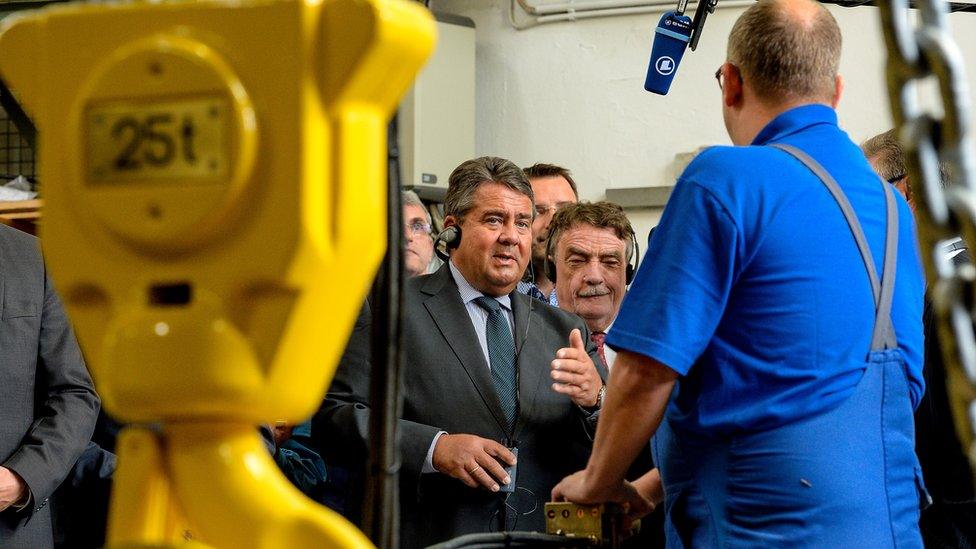
Sigmar Gabriel, the German economy minister, says that trade negotiations between the United States and the European Union have effectively failed.
The talks began in 2013 with the aim of reducing or removing a wide range of barriers to transatlantic trade and investment - but they have proved controversial in both Europe and America.
There are many critics who hope Mr Gabriel's assessment is right.
The objective of the talks is to boost the incomes of Europeans and Americans , externalby stimulating more trade and investment.
The planned agreement is known as the Transatlantic Trade and Investment Partnership, or TTIP. The two sides are seeking to eliminate most tariffs (trade taxes) and to make it easier for American and European business to comply with regulations when selling goods into the other market.
But opponents have rejected the economic analysis, and criticised the potential impact on the environment and consumers.
They argue that by seeking convergence in regulation, TTIP is actually heading to the lowest levels of protection.
There is also a widespread concern about plans for tribunals or courts where foreign investors would be able to sue a host country government if its policies breached the agreement and caused losses to the investor.
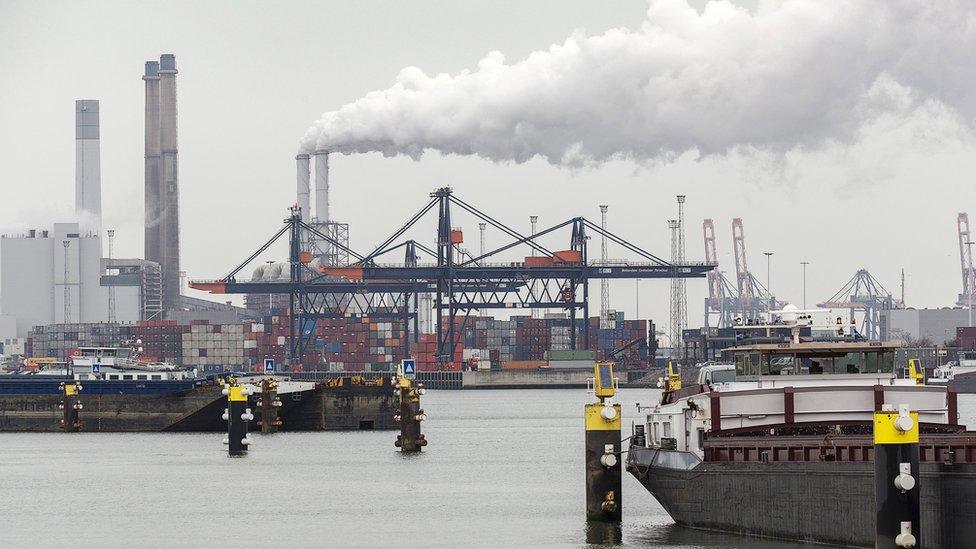
There is also a wider issue about people who feel left behind by globalisation - the increased international economic integration that TTIP embodies. That opposition undermines support for trade liberalisation agreements.
TTIP certainly has support among business groups on both sides. And the negotiators in the US and at the European Commission have pressed ahead, saying they have made progress.
But they are well behind the original timetable that envisaged a deal within two years - by mid-2015. Now they would like to have it completed under President Obama, and preferably ratified by the US Congress before he leaves office in January.
Brexit setback
Mr Obama has been consistently enthusiastic about the plan. His successor may not be. Donald Trump, the Republican presidential candidate, has been particularly critical of some of the country's trade agreements.
His Democrat opponent, Hillary Clinton, has also expressed reservations about some US trade agreements - especially the Transpacific Partnership (TPP). As Secretary of State, she supported the TPP negotiations but has said more recently that the result did not meet her standards. Her position probably reflects the growing concerns among American voters.
The UK's decision to leave the European Union is also a setback for TTIP supporters. The UK has been one of the most supportive of the EU member countries, so TTIP is losing a significant part of its political driving force in Europe.
In addition, the UK being outside Europe does potentially diminish the attractiveness of the plan to the US if it does not enhance American business access to Britain.
The UK may be just one market in Europe, but it is an important one.
The political timetable in Europe is another obstacle to TTIP. Elections take place in both France and Germany over the next year. The French president, Francois Hollande, has also expressed opposition to the way the talks were progressing.
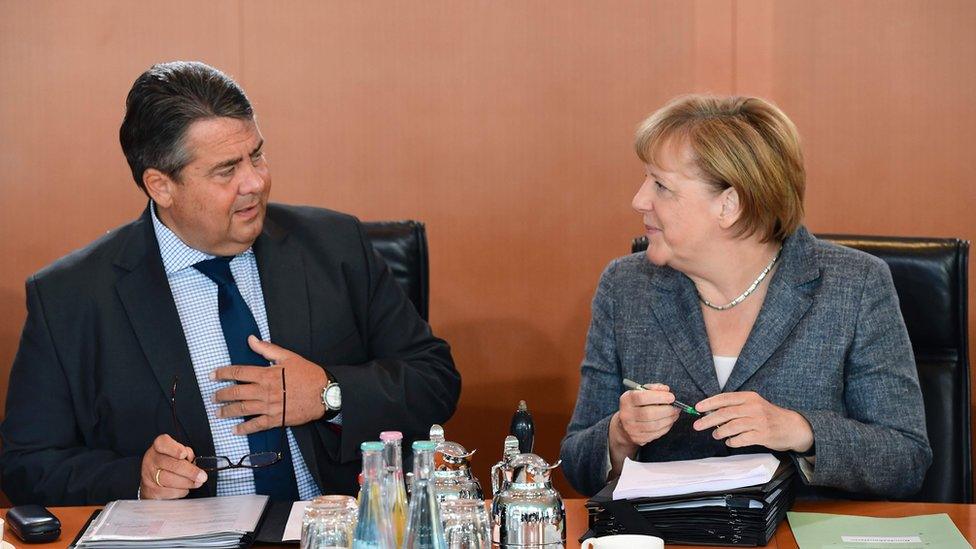
Angela Merkel, the German Chancellor, and her deputy, Sigmar Gabriel
There are usually few votes to be had from promoting trade liberalisation agreements even if candidates themselves do believe they are, on balance, beneficial. The benefits of trade liberalisation come in large part as lower prices and more choice for consumers, who do not necessarily realise the link with trade policy.
So is Mr Gabriel right to say the talks have in effect failed? It's not his call - certainly not him alone. Trade negotiations are conducted by the European Commission on behalf of all the member states. They would want to be involved in any decision to bury TTIP.
Mr Gabriel is also the leader of the junior partner in the coalition led by Angela Merkel. No such decision could bypass a leader of her importance.
The European Commission certainly does not agree with Mr Gabriel. The chief negotiator, Ignacio Garcia Bercero, responded: "Remember what Mark Twain said." The author once said that reports of his death were "greatly exaggerated". A spokesman for Mrs Merkel said that it was right to continue negotiating, adding that often a breakthrough is only achieved "in the final round".
That said, Mr Gabriel's remarks were a statement of his own assessment of where the talks are at. He was undoubtedly giving voice to real concerns across the continent and in the US. The TTIP negotiations continue for now - but under a darkening political cloud.
- Published28 August 2016
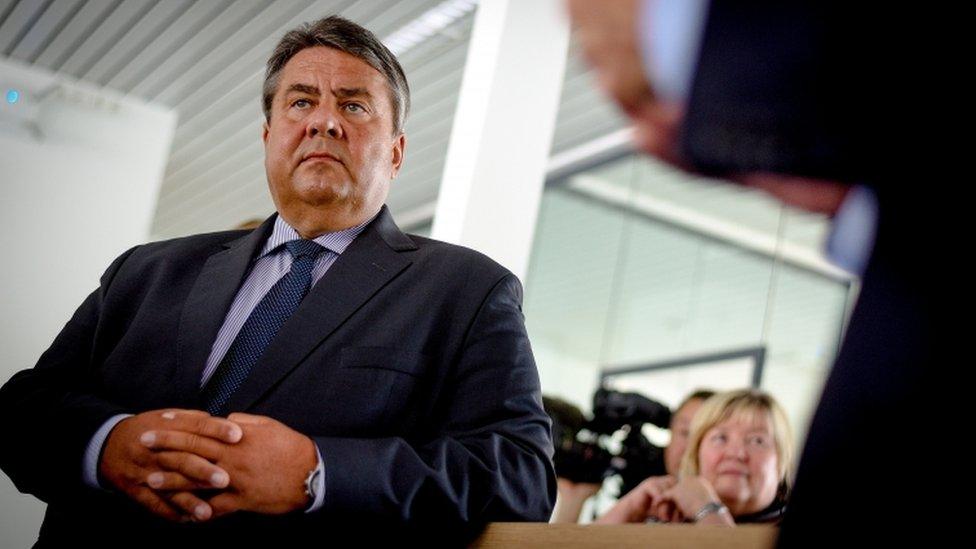
- Published15 July 2016
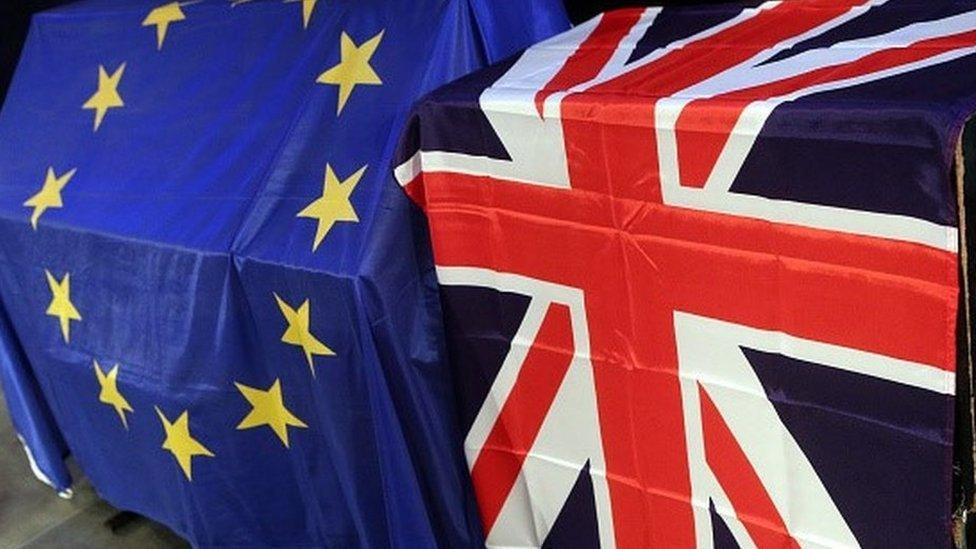
- Published7 June 2016
